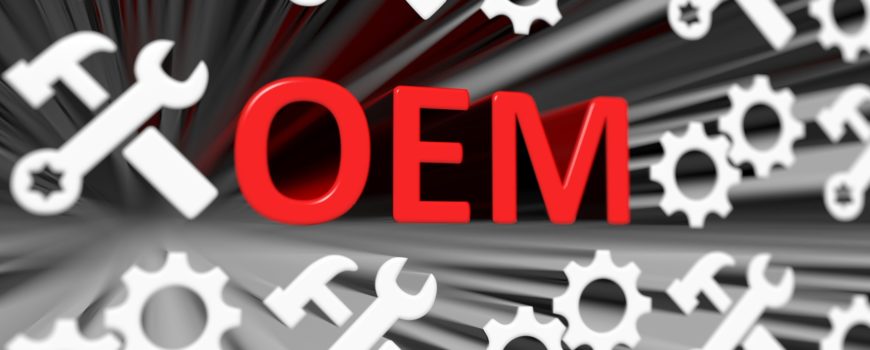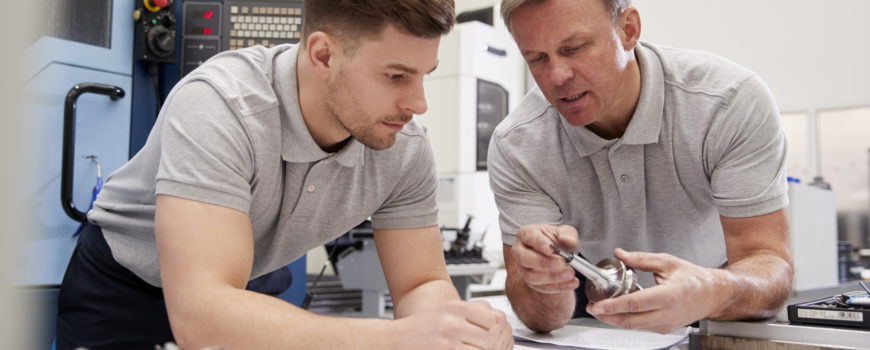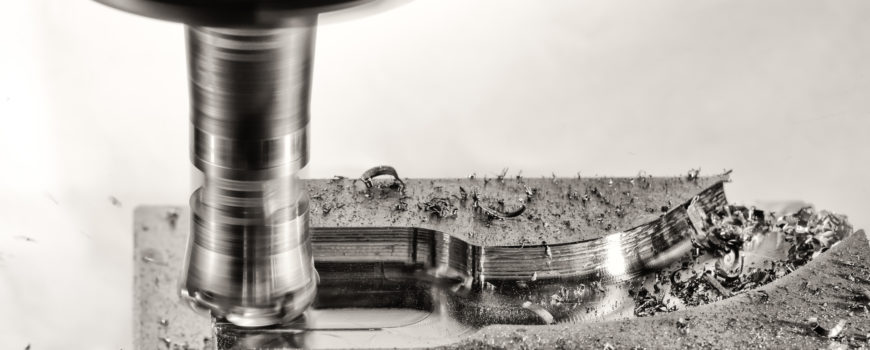Original equipment manufacturers (OEM) parts make a difference and that variation is amplified in precision machining. The benefits of OEM parts are important and will make a difference in any industry, some are just more pronounced than others. To make this case obvious, we should begin by looking at the difference OEM parts make in general.
The OEM Difference
From quality, fit, and time, there are many benefits to working with an OEM, regardless of what industry you work in. The difference is evident right from the start, from the moment you order your first part…
The Right Parts Faster
When ordering from an OEM, the time it takes to find a part is generally quicker because so many other variables have been eliminated and part identification is that much easier for the clerk. This also means it takes less time for the warehouse or stockroom to locate and pull the part. On the shipping end, an OEM will generally always be able to have the part packaged, labeled and shipped faster than a broker or distributor. That is in large part due to the aforementioned factors and the elimination of needing to order a part from a supplier because the OEM is the supplier.
The Right Fit
Nobody should knock the concept or use of “universal” parts, they can and do serve a very important purpose in many different sectors. It isn’t that universal parts don’t work, they do. The question is, do they work best? This isn’t an issue of aesthetics and function. This is a matter of performance, efficiency, durability, and money. The right parts are the parts that were made to fit, specifically designed for a machine, motor, component or part. We don’t have to look far to find out why OEM parts are the best option, the reason is quality. OEM manufacturing affords customers parts that perform better because of the advantages of having the original part design. That performance is often recognized in efficiency as the right parts promote the best possible operation of the tool or machine the part is for and the better the part works the more durable it will be. This all eventually results in savings, from lower production costs to increased profitability because of parts that help motors and systems run precisely as they were designed and built to.
OEM Quality
Original equipment manufacturers are putting their name on every part. They work directly with their customers and they have the original design, plan, and blueprint for their parts. All of that adds up to simply being able to produce the highest quality parts possible and more than a few reasons to do so. OEMs depend on keeping their customers satisfied and their parts working properly because that is their business and the business relationship depends on being able to deliver. The robotics, medical, electrical and aerospace industries are just a few of the fields that rely on quality parts that do more than work but work exactly how they were designed to work. That is the quality difference and this is where quality and precision machining go hand in hand.
OEM in Precision Machining
The best technology and software, the most advanced CNC, Lathe or machining tools and even the highest quality materials aren’t enough to deliver the finest in precision machining. It doesn’t matter how smart your system is or if you are working with plastic, stainless steel, carbon steel, aluminum or brass. Getting the best results won’t happen without the most talented machinists who know how to utilize today’s technology. It is this mix of talent, that kind of technology and the best machining equipment that set OEM parts apart.
The Little Things Matter
It could be the precision used in billiards, the precision required in the medical arena or demanded of space exploration, the little things in precision machining matter. Reaching out to an OEM will mean getting that kind of precision for your parts, the parts that make you tools accurate, your motors run perfectly or that enhance your efficiency and production. A little part on an assembly line can stop everything. Small parts in a motor that aren’t perfectly calibrated will reduce efficiency and increase cost by creating wear or causing the engine to work harder than it should. Businesses and organizations everywhere and from every industry rely on parts to fix, replace, upgrade or improve their tools, their motors, their operations and in the end, their business. It’s the little things.
From ball racks to perfectly measured calipers, small factors like calibration and tolerance range measurements determine if a part works and how well it works. Working with an original equipment manufacturer helps companies to not only get parts that work but parts that work properly and well. When companies can operate, run and work at optimal levels, how big do those little things become?
The OEM Advantage for Tomorrow
Keeping your business and your operations running smoothly today also means being prepared for tomorrow and the future. With upgrades to equipment and tools and the need for companies to continually upgrade and keep up with competition, the benefits of working with an OEM go far beyond the here and now. An OEM will always have an advantage when changes or improvements are made or needed to existing parts because they have the original plans, molds, designs, and measurement. This simply results in being able to more accurately adjust or update parts to meet whatever changes are needed. This benefits those who are using OEMs by getting faster updates to parts, by having more accurate adjustments or changes made and by receiving those parts sooner.
People choose to work with an OEM because of their quality, expertise and the relationship they forge. Having a partner who understands what your business does, what it needs, and with the tools to help is an advantage of working with an original equipment manufacturer – not just today but for the future too. There is a place for aftermarket parts but the front of the pack is reserved for OEM parts.
Where is your company at in the race and how can the OEM difference make a difference for you?











